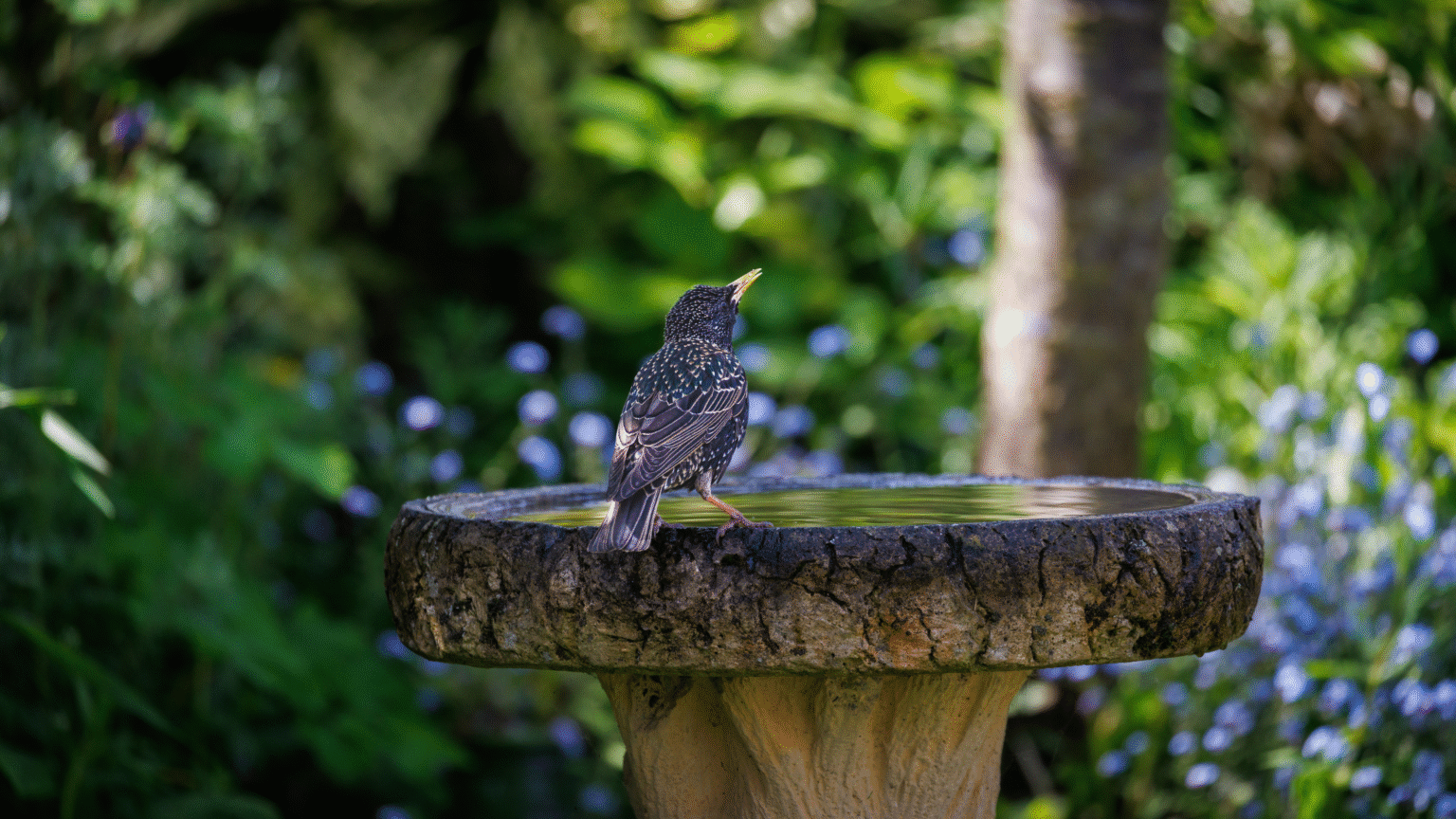If you have a bird bath in your garden, then you’ll be well aware that the summer months are the prime time for algae to build up in your bath. But, wildlife experts have revealed a nifty trick to keep algae and bay and your water clear – and all you need is a penny.
A bird bath is a brilliant way to attract birds to your garden, but you will need to know how to clean a bird bath to keep it safe for birds (and nice to look at).
A build-up of algae can be uninviting for birds and put them off visiting your garden, not to mention the conditions can become unsanitary for birds. Now, experts are urging you to place a copper penny in a bird bath to ward off algae – here’s how it works.
How does it work?
It might sound like a bit of an old wives’ tale, but adding a copper penny to your bird bath is effective at preventing algae as it is a natural algicide.
‘They [copper pennies] are not dangerous to birds and are a tried-and-true method for lowering algae and keeping your bird bath cleaner for longer,’ explains Helen Nyul, Group Head of Biodiversity at David Wilson Homes.
‘This is because copper, the primary material in a penny, is an algicide, meaning it can slow down the growth of algae in water.’
Some algae can be beneficial for birds, but don’t make the bird bath mistake of assuming algae is not an issue. Blue/ green algae ( also known as cyanobacteria) can be incredibly harmful to birds, releasing toxins that can even cause death for birds.
Why should you add a penny to a bird bath?
Adding a copy penny to your bird bath is a good preventative step to combat algae and something the experts recommend you do. But it does not mean you don’t have to clean your bird bath.
‘It’s a good idea to replace your penny every 3-4 months, so you can do this seasonally if it helps you to keep track. You can leave them longer, but you risk minimising the effects of the algae-fighting properties copper has. During warmer months, we’d recommend replacing your penny more frequently to keep algae build-up at bay,’ says James Ewens, gardening and wildlife expert at Green Feathers.
‘If you’re re-using the same penny, you can give it a good scrub clean to remove any green tarnish, rust, or corrosion that could release unwanted metals into the bath. We recommend a brief soak in vinegar and salt, or a rub with lemon juice and baking soda, followed by a good rinse. When coins are clean, it ensures we’re leaching copper, not contaminants that could harm birds.
‘It’s important to remember that putting a penny in a bird bath is just one tool for reducing algae, and should be implemented as a little extra to your regular cleaning practices. Copper pennies can be a fantastic way to minimise algae and bacteria, limiting toxic microorganisms for birds, but scrubbing your bird bath and replacing the water regularly are essential for upkeep alongside!’
What you need
ADIOS!
Adios! Bird Bath Cleaner
Safe for birds and animals, this bird bath cleaner banishs algae, sludge and grime with ease.
Mellbree
Bird Bath Copper Disk
Modern pennies are made with copper and steel, so it can be worth investing in a copper plate like this one for the best results.
Dunkive
Dunkive Brush for Bird Baths
You’ll want to give your bird bath a good scrub every week to ensure it stays clean and hygeneic, and this brush is specially designed for outdoor cleaning.
If you want birds to feel like welcome visitors in your garden, then you have a responsibility to ensure they have a safe environment. Adding a penny is an easy method to reduce algae production, and it will cost you next to nothing – what do you say?
Read the full article here
